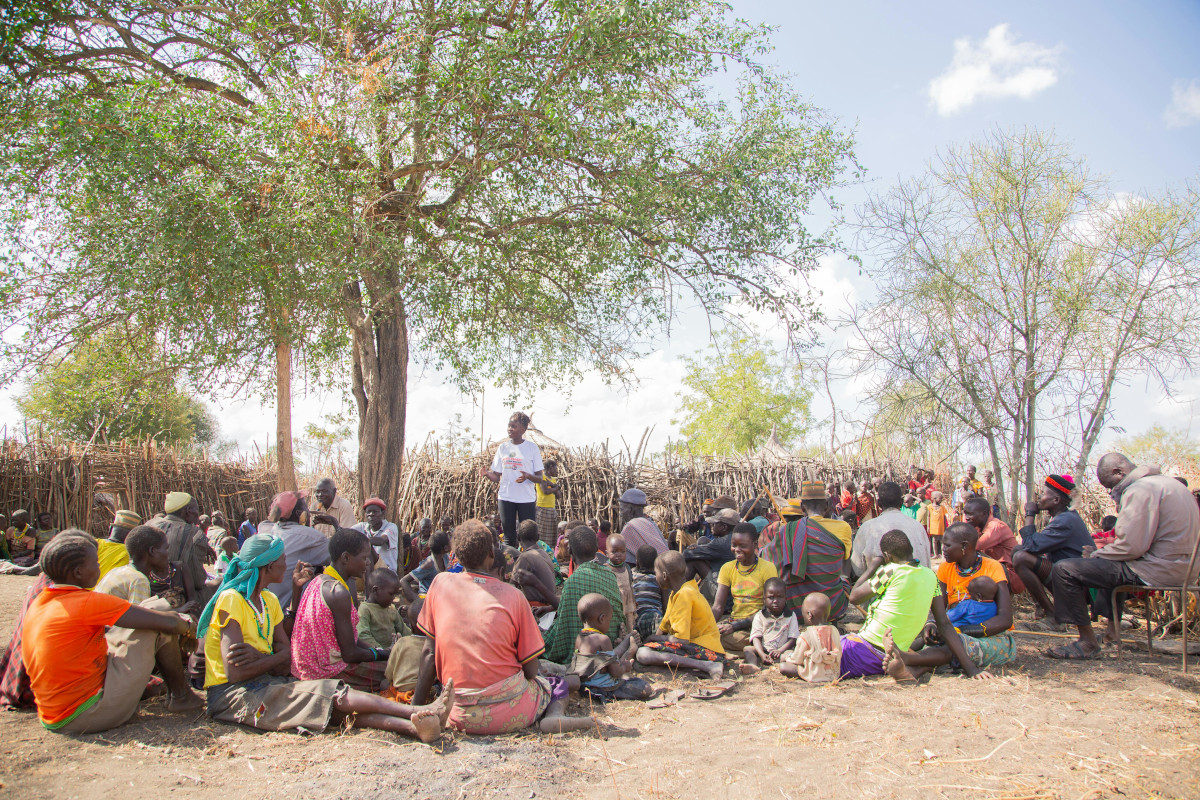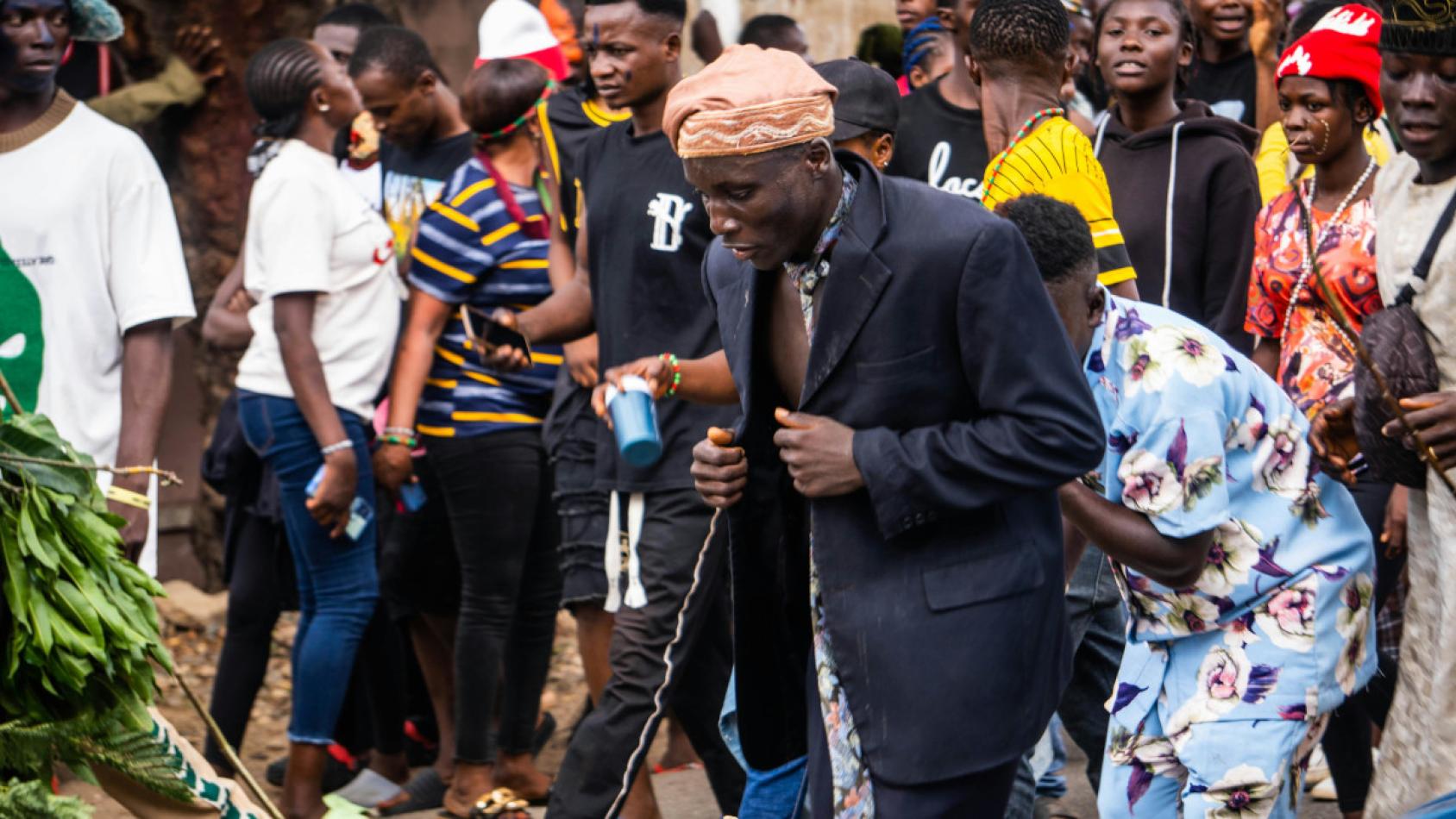Daniel Comboni
Comboni Missionaries
Institutional area
Other links
Newsletter
Monday, September 2, 2024
One of the greatest missteps of missionary Christianity has been to present itself as a substitute for African religion. “What many missionaries have failed to understand is that a way of life, a spirituality, is different from an organised religion made up of creeds, dogmas and doctrines...”, says the Nigerian Jesuit Agbonkhianmeghe Orobator. [Beppe Magri – Popoli e Missione. Credit photo Pexels]
What many missionaries have failed to understand is that a way of life, a spirituality, is different from an organised religion made up of creeds, dogmas and doctrines. The latter can be easily replaced and superseded, not so the former. This is stated by the Nigerian Jesuit Agbonkhianmeghe E. Orobator, head of the Society of Jesus throughout Africa, in his eloquently titled book ‘Confessions of an Animist, Faith and Religion in Africa’ (2019).
In the not-so-distant past, it seemed almost taken for granted to label African religious culture, with its myths, rituals and laws, as ‘animist’ or ‘pagan’.
Simply because it does not conform to our canons of scientific and philosophical knowledge firmly linked to Greco-Latin culture; or, more specifically in the missionary context, contrary, at least in appearance, to the moral doctrines and theological categories of Christianity.
Yet, as well described by Professor Kipoy Pombo, a Congolese Jehoshaphat cleric, in his book ‘Who is Man, An Introduction to Philosophical Anthropology in Dialogue with Cultures’ (2009), African traditional religions are ontological and permeate the way of life ‘from the cradle to the grave’; and this is also true for most of those who profess to be ‘converts’ to Christianity or Islam.
Orobator argues that ‘what the missionaries called animism was a caricature based on stereotypes and ignorance, and on the arrogance of men who considered themselves ambassadors of a civilised religion and way of life. Even today, several Christian denominations consider the African religion to be demonic, satanic and occult'.
But he recognises that evangelisation spread not by replacement, but by integration into the African way of life, proving that ‘Christianity is rooted in the soil of African religion’.

Among the most present stereotypes that portray African religion in a ‘caricatured’ (and disturbing) manner is undoubtedly the relationship of man (in interpersonal, family and group relations with family ties and cultural affinities) with the forces of evil.
Professor Kipoy reminds us, as a matter of fact, that African religion is nourished by a spirituality generated as much by the visible world, in which leaders with authority over the family and related groups are identified, and nature (earth, rivers, sky, animals, trees, places), as by the invisible world consisting primarily of a life-giving Creator, ancestors who act as intermediaries between man and the Creator, spirits (good, or bad), the disembodied souls of the dead who are on their way to the ancestral village, and natural forces (lightning, earthquakes, rain, wind, fire).
These two worlds are closely related to each other, like two sides of the same coin representing the world of the living.
It is true, however, that in African cultures there are also occult practices, outside the constituted ties with the world of the living and therefore of traditional religion, which concern in particular the search for and suppression of the causes of personal failures and accidents, family misfortunes, illnesses, and death.
These practices, which we dismiss far too simplistically as witchcraft, make use of people accredited as witch doctors, fetishists, soothsayers and healers, whom Father Orobator clearly warns against, stating that ‘African religion does not tolerate witchcraft, it considers it an aberration’.
This is not to say, however, that a certain African Christianity (represented, at least in part, by what we generically call sects), manifests itself in ‘pathological performances’ by religious exponents whom Orobator does not hesitate to describe as ‘jet-set preachers’, who abuse religion for personal gain, using rituals similar to those of witchcraft.
I wonder if things are as I was told by an African monk many years ago about an alleged rationally inexplicable evil event: ‘I don't believe in these things, but do they really happen?’
See, Spiritualità africana, ben oltre la caricatura dell’animismo
[Beppe Magri – Popoli e Missione]
Translated by: Jpic-jp.org




